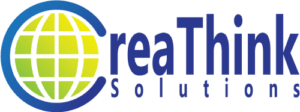Remote setup requires offshore staffing. It is when companies, businesses, or organizations hire professionals from other countries. These hires perform tasks remotely. Professionals manage their roles and duties without the issues of geographical boundaries. Offshore staff can work from wherever and are often managed by outsourcing companies or Employer of Record Services (EOR). It is a strategic step to reduce costs while expanding access to talent on a global scale.
The idea of managing offshore staff can be daunting. It entails issues such as communication barriers, cultural differences, and data security risks, to name a few. That is why it is crucial to establish a structure for effective offshore staff management. Offshore IT staffing in the Philippines must focus on developing communication strategies. Effective management of offshore staff ensures clear objectives and achievable goals, efficient tracking of team performance, and long-term training and development. Below are some pointers to note to optimize solutions for offshore team challenges.
Set Clear Expectations and Goals
Employers or hiring managers must know what they want in their employees, and that should translate well into their job descriptions. A well-crafted job description is a product of thorough job analysis and contains the specific roles and responsibilities of an employee. This description then produces criteria to determine Key Performance Indicators (KPIs), quantity performance, and measure progress.
Having a well-crafted job description and KPIs as reference allow your offshore talents to follow a clear guide on how to become a high-performing staff and ensure that their progress has positive effects on the company’s mission and goals. To communicate feedback, arrange for regular check-ins and goal reviews/evaluations to ensure that your offshore team is on track. Review your biweekly, monthly, and quarterly targets, then establish SMART goal setting to track milestones and clarify potential miscommunications.
Use Effective Communication Strategies

As with any personal and professional relations, communication is key, especially when there are geographical and cultural limitations. A strategic plan for communication develops trust and guarantees transparency to all stakeholders. First, establish the team’s preferred platform and tools for communication. Platforms such as Slack, Zoom, Google Workspace or Microsoft Office are readily available online to aid your team’s video conferencing and digital conversing needs.
It is also always important to schedule and follow through regular team check-ins. Provide status updates and keep each member of staff aligned with the goals and the timeline of your tasks. Other than job-specific concerns, this is also a good avenue to receive feedback from your team about their workload, their experiences in the company so far, and other team-related concerns they may have. Consider time zone differences, optimize meeting times, accommodate onshore and offshore team members, and foster inclusivity.
Build Strong Team Culture Across Borders
Traditional team-building activities may be quite difficult to organize in a remote setup, so you must improvise for your offshore team. You can strengthen your team’s bond using virtual activities. Use platforms and websites, take part in online games and trivia sessions. You can also organize and facilitate informal “coffee chats” and encourage camaraderie. Casual conversations that encourage your staff to talk about their personal goals and current dilemmas can help build a strong rapport, so long as the boundaries between professional and personal aspects are respected.
Aside from checking in on them, celebrate with them as well. Greet and congratulate them on their milestone in life as it boosts morale. Events such as birthdays, work achievements, project completions are opportunities for you, as the manager, to make them feel valued and recognized. Rapport can be a strong foundation for your team to feel more at ease in being honest about their feedback, and you may reinforce this by fostering a space where they can openly discuss suggestions and solve challenges as a team. These efforts create a sense of community and belongingness, a vital part of effective offshore team management.
Provide Continuous Training and Development
Training and development are your company’s investment in growth. Maintain a competitive edge by offering continuous learning and skills development for your offshore staff as well. Access to online courses, workshops and certifications encourage them to perform better, boost their confidence, and ensure that they remain dedicated to your company. Coaching and mentorship can also provide invaluable insights and guidance for your staff. You can pair offshore staff with onshore mentors, as it not only helps the offshore staff integrate into the company process, but also the onshore mentors in building leadership skills. It improves work relationships and promotes a learning culture. Always keep offshore staff in the loop, especially on important memos such as company updates and new policies. It gives a sense of security in their position and encourages longevity and loyalty.
Ensure Accountability and Performance Tracking
Aside from meetings to check progress and productivity, encourage the use of project management tools, such as Asana, Trello, Notion, or Jira. This helps keep professional correspondence and urgent tasks separate, prioritized, and recorded. Project management tools can also serve as modes to validate the staff’s accomplishments. Track their deadlines and progress. Data generated from these tools can also draw report inputs for performance evaluation and feedback.
Assessments and evaluations are best used to practice accountability. During performance review season, the employee’s actual accomplishments are compared to their goals and objectives, and assessed by quantity, quality, and timeliness. This spots their strengths and weaknesses, leaving room for constructive feedback. Evaluations identify areas to improve or maintain and skills and achievements to compensate and recognize.
Address Common Challenges in Offshore Management
Offshore management poses various challenges as well. Regardless of using the English language as the default medium of speaking, non-native speakers can struggle in interpreting culture specific norms and nuances. Tone and accent can spark further misunderstandings as well, resulting in errors and delays in the project timeline. Time zone differences can disrupt the flow of communication and produce misaligned expectations and different interpretations. Because of the team living in different countries, limited face-to-face interactions can cause oversight and create a sense of detachment.
The key to combat these challenges lies in taking proactive steps to create a professional and well-performing team. Conduct training and online seminar sessions to promote cultural sensitivity, understanding cultural norms and different communication styles. Using centralized translation tools and/or communication platforms can also help. Limit the use of department jargon and practice clear and simple language. Keep a centralized and shared drive for detailed documentation of instructions, agreements, discussions, and templates to have a unified format. Coordinate time zones when needed and use shared calendars and structured management systems to allow real-time collaboration. To address physical oversight, consider assigning a local team manager or point person to connect better with the offshore team, and arrange in-person visits or virtual team-building activities to enhance work relationships and commitment.
Unlock Effective Offshore Management with CreaThink Solutions
The rise of the digital age has opened countless opportunities to accommodate the world’s growing demands, including those of service and employment. In the Philippines, this has become clearer as more employers and employees transition to a remote setup. Access top-notch EOR services in CreaThink Solutions!
Our mission is to help businesses achieve seamless remote operations through effective staffing solutions. Contact us to experience effortless hiring of top talents and optimize your organization’s potential.
Your business’s capacity to adapt to change determines your success. Give your business a head start by partnering with competent offshore staffing experts from CreaThink Solutions. Visit our website or email us at inquiry@creathink-solutions.com to learn more. Connect with us on Facebook, LinkedIn, and YouTube for updates and insights.







